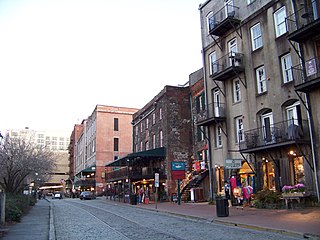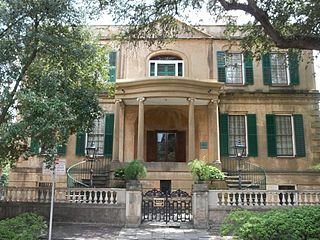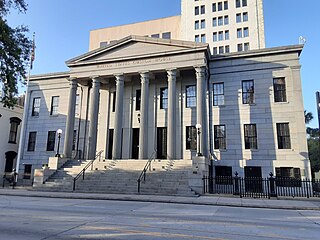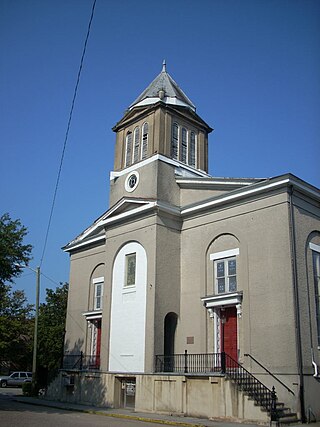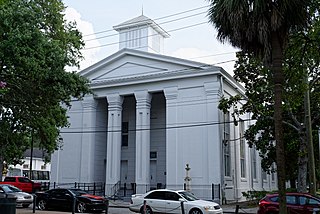Self-guided Sightseeing Tour #3 in Savannah, United States
Legend
Tour Facts
2.9 km
44 m
Experience Savannah in United States in a whole new way with our free self-guided sightseeing tour. This site not only offers you practical information and insider tips, but also a rich variety of activities and sights you shouldn't miss. Whether you love art and culture, want to explore historical sites or simply want to experience the vibrant atmosphere of a lively city - you'll find everything you need for your personal adventure here.
Activities in SavannahIndividual Sights in SavannahSight 1: Savannah Historic District
Get Ticket*The Savannah Historic District is a large urban U.S. historic district that roughly corresponds to the pre–Civil War city limits of Savannah, Georgia. The area was declared a National Historic Landmark District in 1966, and is one of the largest urban, community-wide historic preservation districts in the United States. The district was established in recognition of the Oglethorpe Plan, a unique model of urban planning begun in 1733 by James Oglethorpe at Savannah's founding and propagated during the first century of the city's growth.
Wikipedia: Savannah Historic District (Savannah, Georgia) (EN)
Sight 2: Owens-Thomas House
Get Ticket*The Owens–Thomas House & Slave Quarters is a historic home in Savannah, Georgia, that is operated as a historic house museum by Telfair Museums. It is located at 124 Abercorn Street, on the northeast corner of Oglethorpe Square. The Owens–Thomas House was designated a National Historic Landmark in 1976, as one of the nation's finest examples of English Regency architecture.
Sight 3: Wright Square
Get Ticket*The city of Savannah, Province of Georgia, was laid out in 1733, in what was colonial America, around four open squares, each surrounded by four residential "tithing") blocks and four civic ("trust") blocks. The layout of a square and eight surrounding blocks was known as a "ward." The original plan was part of a larger regional plan that included gardens, farms, and "outlying villages." Once the four wards were developed in the mid-1730s, two additional wards were laid. Oglethorpe's agrarian balance was abandoned after the Georgia Trustee period. Additional squares were added during the late 18th and 19th centuries, and by 1851 there were 24 squares in the city. In the 20th century, three of the squares were demolished or altered beyond recognition, leaving 21. In 2010, one of the three "lost" squares, Ellis, was reclaimed, bringing the total to today's 22.
Sight 4: U.S. Customs and Border Protection
The U.S. Customhouse is a historic custom house located in Savannah in Chatham County, Georgia. It was built to house offices of the United States Customs Service.
Wikipedia: United States Customhouse (Savannah, Georgia) (EN), Website, Heritage Website
Sight 5: Yamacraw Bluff
Yamacraw Bluff is a bluff situated on the southern bank of the Savannah River. Now completely enclosed within downtown Savannah, Georgia, the bluff is most notable for being the site upon which General James Oglethorpe arrived to settle the British colony of Georgia. The area was originally inhabited by the Yamacraw Indians. A stone marker and statue now adorn the bluff in honor of its historic significance.
Sight 6: First African Baptist Church
First African Baptist Church, located in Savannah, Georgia, claims to be derived from the first black Baptist congregation in North America. While it was not officially organized until 1788, it grew from members who founded a congregation in 1773. Its claim of "first" is contested by the Silver Bluff Baptist Church, Aiken County, South Carolina (1773), and the First Baptist Church of Petersburg, Virginia, whose congregation officially organized in 1774.
Wikipedia: First African Baptist Church (Savannah, Georgia) (EN), Website
Sight 7: First Bryan Baptist Church
Historic First Bryan Baptist Church is an African-American church that was organized in Savannah, Georgia, by Andrew Bryan in 1788. Considered to be the Mother Church of Black Baptists, the site was purchased in 1793 by Bryan, a former slave who had also purchased his freedom. The first structure was erected there in 1794. By 1800 the congregation was large enough to split: those at Bryan Street took the name of First African Baptist Church, and Second and Third African Baptist churches were also established. The current sanctuary of First Bryan Baptist Church was constructed in 1873.
Share
How likely are you to recommend us?
Disclaimer Please be aware of your surroundings and do not enter private property. We are not liable for any damages that occur during the tours.
GPX-Download For navigation apps and GPS devices you can download the tour as a GPX file.
